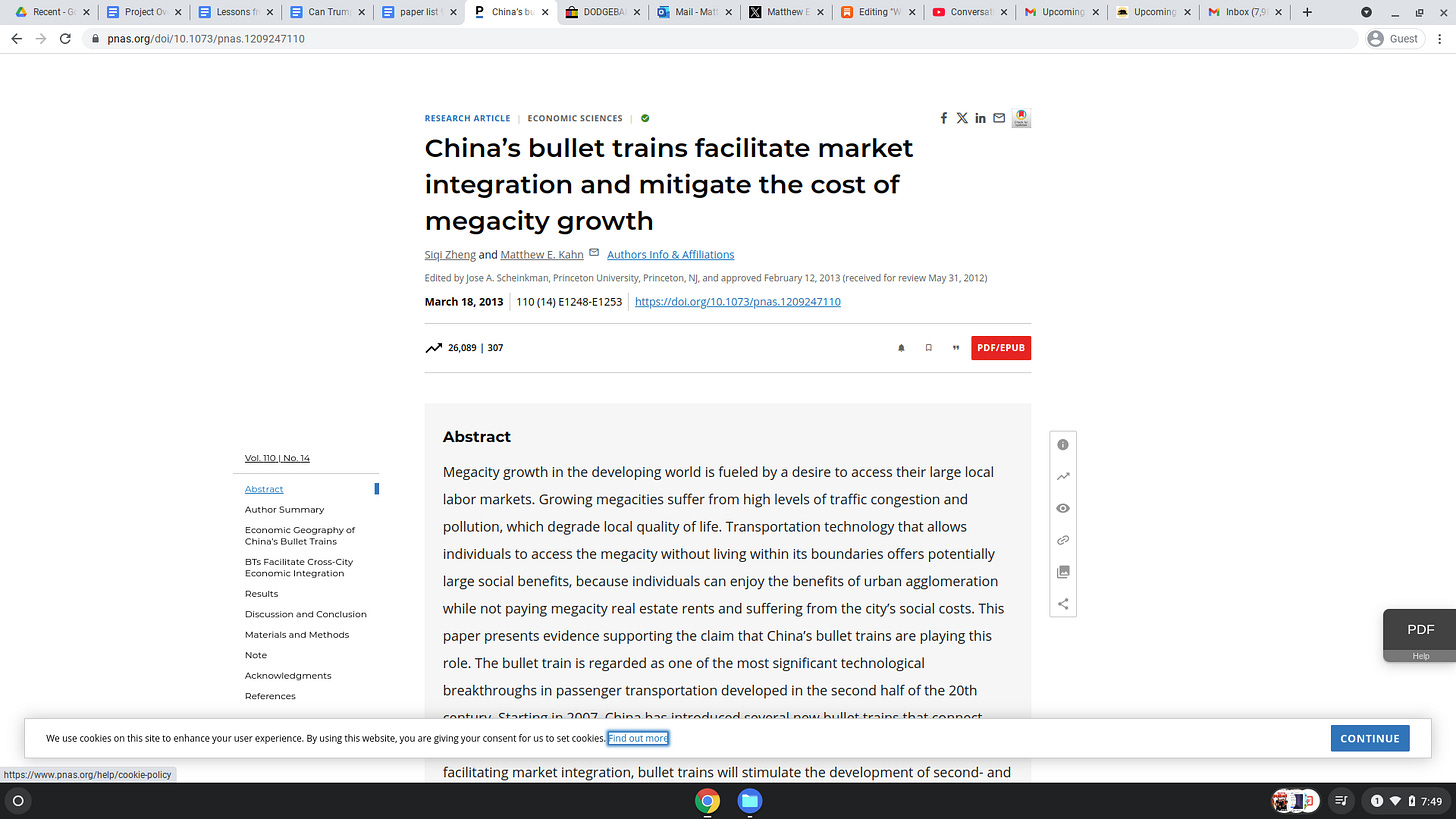Will Musk Play "DO(D)GE Ball" with California's High Speed Rail?
Who Should Pay for Local Public Goods?
A recent Internet article reports that the DOGE Committee will take a close look at Federal Subsidies for California’s High Speed Rail. Yes, California is a Blue State. Yes, President Trump is a Republican but the issue of spatial subsidies for infrastructure raises some very interesting economics issues.
First, let me start with some background.
I have published two papers documenting the benefits of China’s High Speed Rail network. Here is our 2013 paper and there is a well cited 2020 Journal of Urban Economics Paper.
I have also published two U.S papers with Nate Baum-Snow that have been well cited where we argue that past within city major transit projects have not past a cost-benefit test. This matters because these projects have received a 75% subsidy for their construction.
NEW POINTS
California is a rich state and the firms and workers in this state mainly benefit from local infrastructure. Thus, local infrastructure improvements should be financed by the State. When taxpayers must vote on whether to raise their own taxes (or future taxes if they issue bonds) to pay for local public goods, this creates the right incentives to consider the tradeoffs here. Of course, I want a free lunch where you pay for my lunch!
The environmental benefits from this train are shrinking over time as California’s transport fleet decarbonizes. Take a look at our 2024 paper. As the California vehicle fleet switches to EVS, the marginal gains from the train use decrease.
Interest rates are high right now. This means that the expected present discounted value of the benefits of this train (that won’t even exist until 2040 or later) are low.
Transport economics teaches us that the projected ridership for this train will over-state the actual future ridership of the train. See the work of Don Pickrell and John Kain.
Local politicians in small cities such as Bakersfield will require that the train stop in their areas. These extra stops will slow down the train.
Environmental lawsuits will continue and this will further delay the train.
Musk can spur better state and local policy debates by reducing federal subsidies for projects. Localities should be in charge of choosing and financing their own projects.





